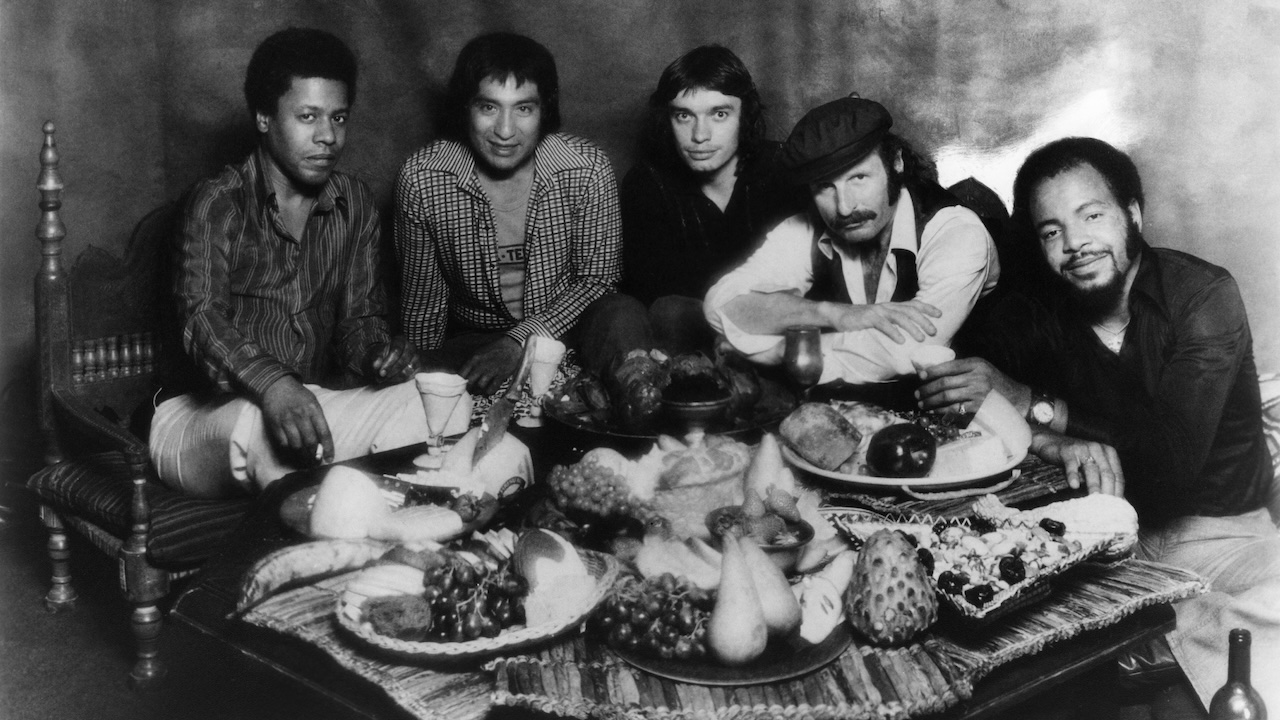
It’s been more than four decades since a 24-year-old Jaco Pastorius took the music world by storm with a singular style and sound never before heard on the electric bass guitar.
Although the skinny kid with the odd name and mind-boggling technique seemed to emerge overnight, Jaco had, in fact, spent all of his late teens and early 20s developing his unique bass concept and amazing chops, playing night after night in music clubs around Florida.
By 1976, his local reputation as a four-string phenomenon had exploded into international acclaim, and Jaco was suddenly the new revolutionary of modern jazz bass, due in no small part to a series of groundbreaking recordings both as solo artist and with jazz fusion powerhouse Weather Report.
Weather Report leader Joe Zawinul, who had heard rough mixes of Jaco's solo album, brought him in to play on two tracks from Black Market, alongside existing bassist Alphonso Johnson. The album also introduced two new faces in the drum chair in Narada Michael Walden and Chester Thompson.
Although Jaco's arrival in Weather Report was lauded by the jazz community, his musical vocabulary was surprisingly not born in the jazz tradition. His feel for the instrument grew out of his love of rhythm and blues, which dominated his repertoire in his formative years.
“Jaco, as brilliant as he was, didn't swing well,” Thompson recently told MusicRadar. “He was very straight, accurate 16ths and that sort of thing. But the feel that Alphonso Johnson and I had together was more swung. We both grew up playing a lot of funk and jazz and stuff, so there was a lot of that in what we did. Well, that’s just not natural to Jaco at all.”
While Johnson had already announced his intention to leave Weather Report in order to join the Billy Cobham-George Duke band, his legacy was assured thanks to bass-centric workouts on tunes like Cucumber Slumber, Mysterious Traveller and the five tracks he recorded on Black Market, including Zawinul’s Gibraltar, Shorter’s Elegant People, and his own 11/4 excursion Hernandu.
“Alphonso had been there for three years, they had been saying to him, ‘Yeah, you're going to become an equal member.’ But then they got new managers and the new managers said, ‘Absolutely not, only Joe and Wayne.’
“So Alphonso was a bit frustrated, and it's not like we were going to be able to retire from playing with Weather Report, you know what I mean? The money wasn't the best, but you just did it for the love of music. By then Alphonso had his own recording contract and unknown to me, suddenly there's Jaco.
“So, it's time to start rehearsing for the tour, we sat down and I started to play what I played on the recordings. I’d have to say, I don’t think Jaco was too comfortable with that. I’ve never heard anything he did that had that particular feel to it. Jaco was a virtuoso, no question, but most of his stuff was straight 16ths. Boy, we got in rehearsal and it was like oil and water.”
“By then, it was like, ‘Okay, this trip is over.’ Which, you know, was fine. I mean, I totally respected Jaco's playing, but that aspect of it – I find it amazing that, as well as he played, he had a lot of trouble with that sort of 16th-note triplet funk kind of thing. It just wasn't in his repertoire.”
For a Stateside tour, which commenced in April, 1976 at Hill Auditorium in Ann Arbor, Michigan, Weather Report announced a new touring lineup, with Pastorius on bass, Alex Acuna on drums and Manolo Badrena on percussion. It was the beginning of a new era in the band's history – the Jaco years.







